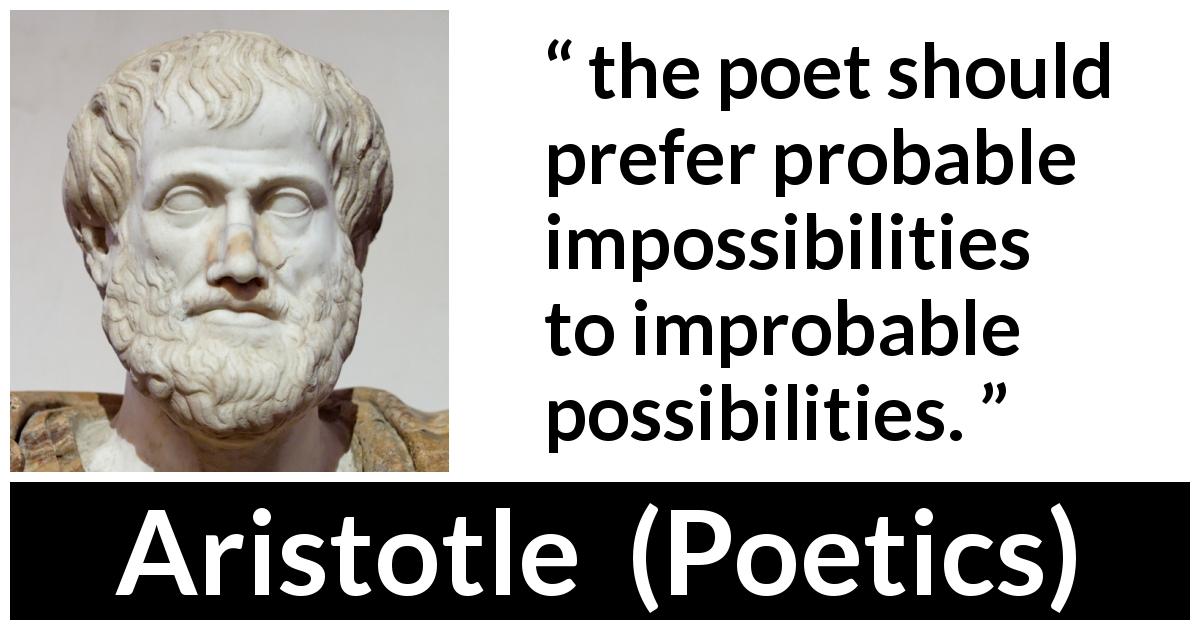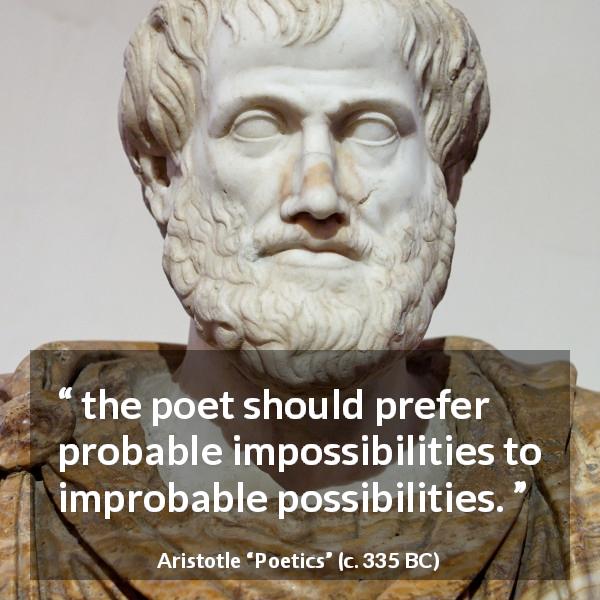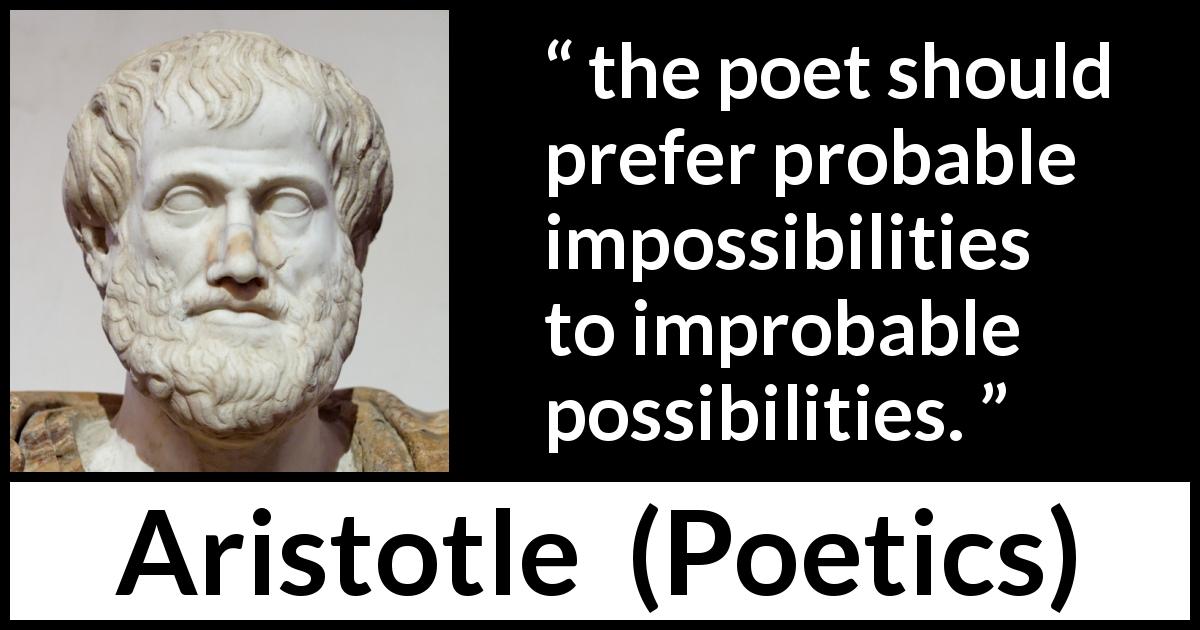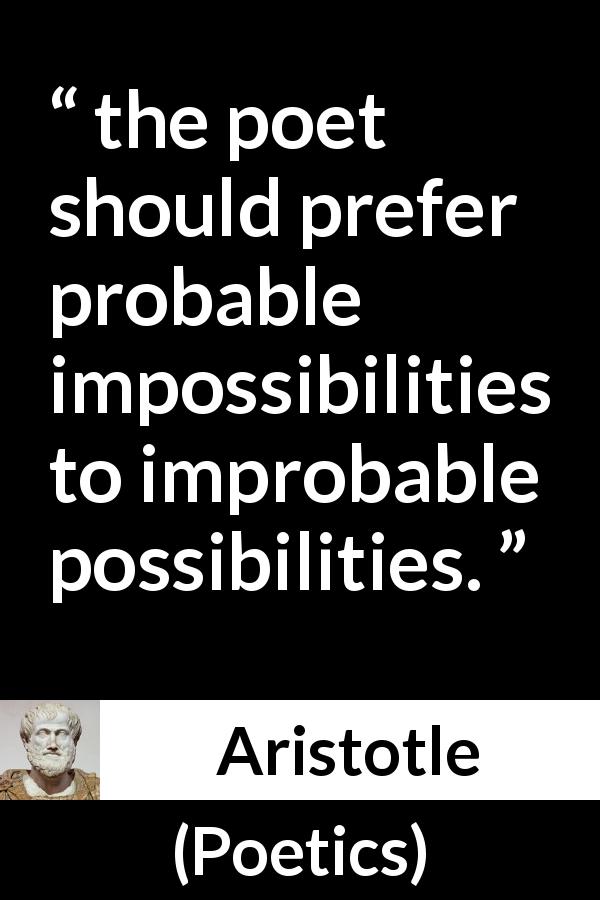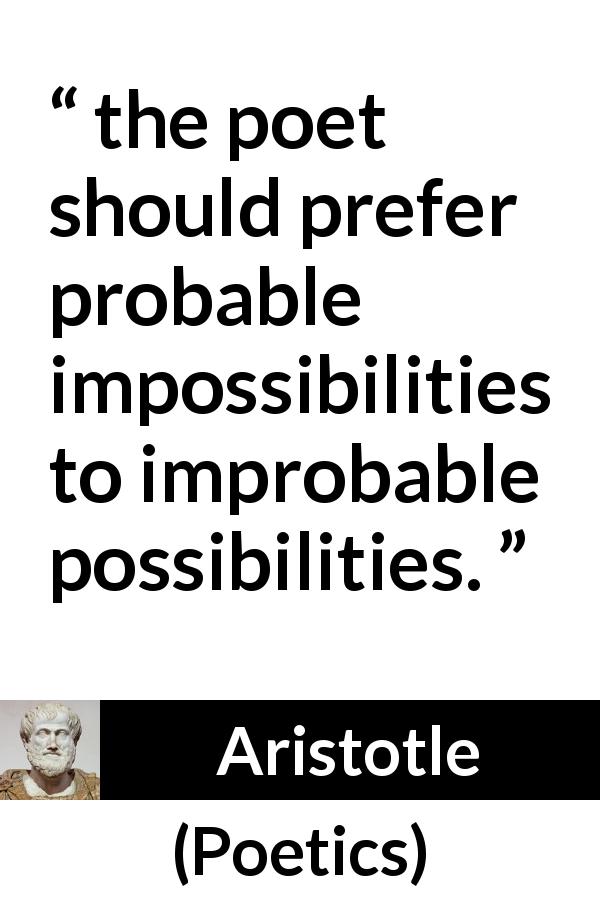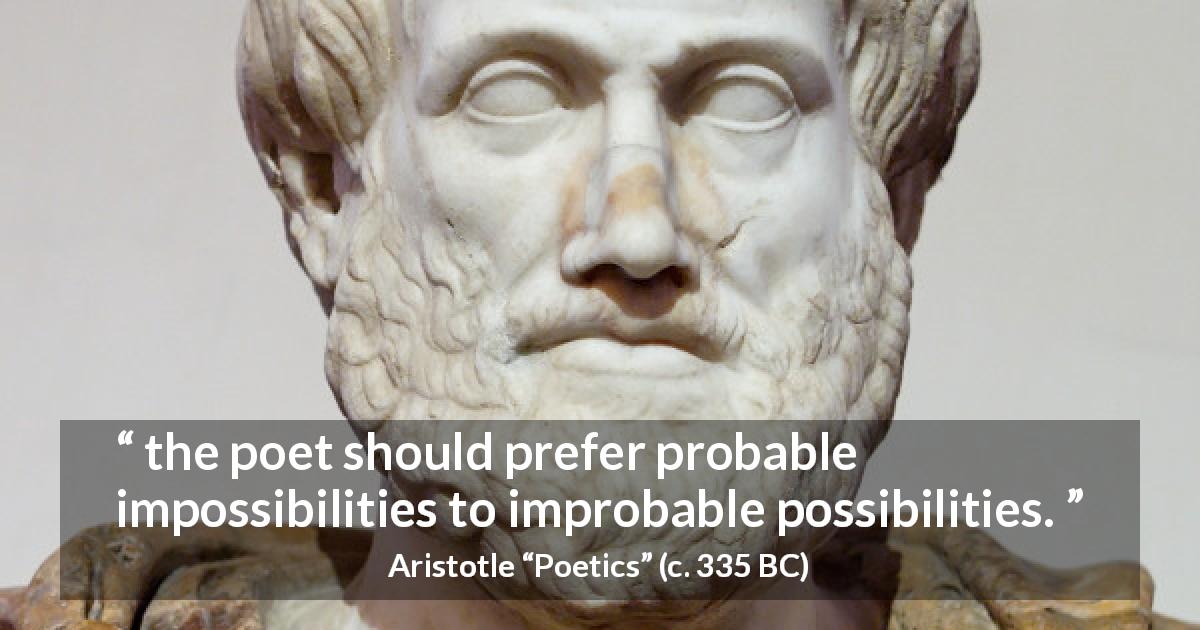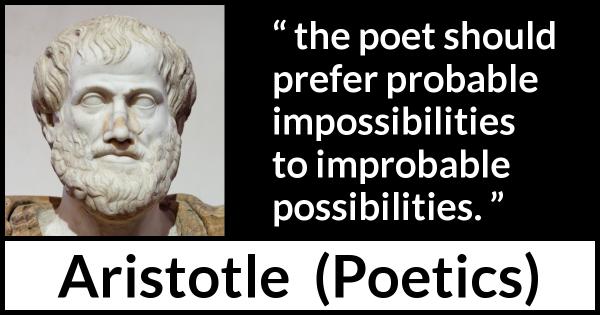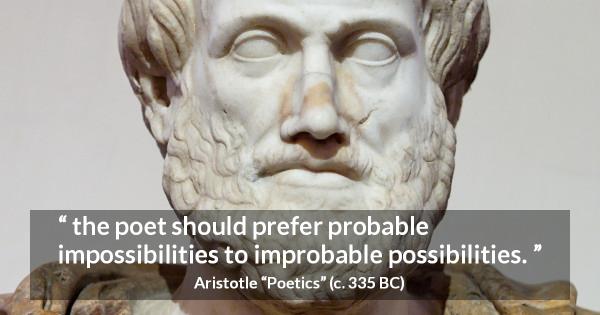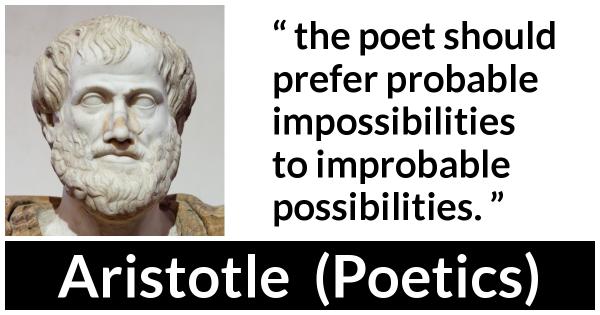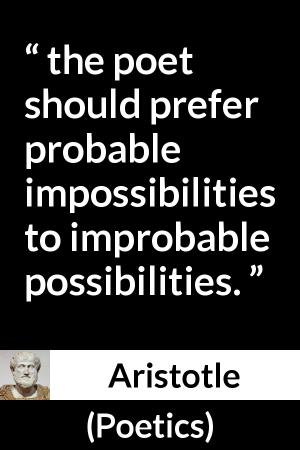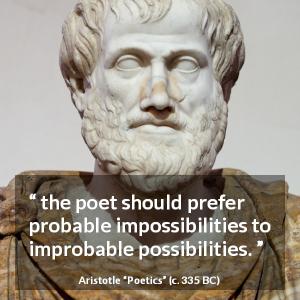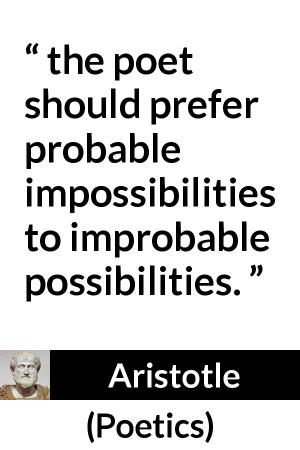“ the poet should prefer probable impossibilities to improbable possibilities. ”
Aristotle, Poetics (c. 335 BC). copy citation
| Author | Aristotle |
|---|---|
| Source | Poetics |
| Topic | reality poetry impossibility |
| Date | c. 335 BC |
| Language | English |
| Reference | |
| Note | Translated by S. H. Butcher |
| Weblink | http://www.gutenberg.org/files/1974/1974-h/1974-h.htm |
Context
“Hence, where the first thing is untrue, it is quite unnecessary, provided the second be true, to add that the first is or has become. For the mind, knowing the second to be true, falsely infers the truth of the first. There is an example of this in the Bath Scene of the Odyssey.
Accordingly, the poet should prefer probable impossibilities to improbable possibilities. The tragic plot must not be composed of irrational parts. Everything irrational should, if possible, be excluded; or, at all events, it should lie outside the action of the play (as, in the Oedipus, the hero's ignorance as to the manner of Laius' death); not within the drama,—as in the Electra, the messenger's account of the Pythian games; or, as in the Mysians, the man who has come from Tegea to Mysia and is still speechless.” source
Accordingly, the poet should prefer probable impossibilities to improbable possibilities. The tragic plot must not be composed of irrational parts. Everything irrational should, if possible, be excluded; or, at all events, it should lie outside the action of the play (as, in the Oedipus, the hero's ignorance as to the manner of Laius' death); not within the drama,—as in the Electra, the messenger's account of the Pythian games; or, as in the Mysians, the man who has come from Tegea to Mysia and is still speechless.” source
